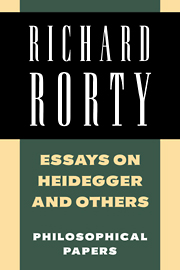Book contents
Is Derrida a transcendental philosopher?
Published online by Cambridge University Press: 14 January 2010
Summary
For years a quarrel has been simmering among Derrida's American admirers. On the one side there are the people who admire Derrida for having invented a new, splendidly ironic way of writing about the philosophical tradition. On the other side are those who admire him for having given us rigorous arguments for surprising philosophical conclusions. The former emphasize the playful, distancing, oblique way in which Derrida handles traditional philosophical figures and topics. The second emphasize what they take to be his results, his philosophical discoveries. Roughly speaking, the first are content to admire his manner, whereas the second want to say that the important thing is his matter – the truths that he has set forth.
Geoffrey Hartman's Saving the Text set the tone for the first way of appropriating Derrida. At the same time that I was picking up this tone from Hartman, and imitating it, Jonathan Culler was criticizing Hartman for light-mindedness. The term “Derridadaism,” Culler said, was “a witty gesture by which Geoffrey Hartman blots out Derridean argument.” I weighed in on Hartman's side, claiming that Culler was too heavy-handed in his treatment of Derrida, too anxious to treat him as having demonstrated theorems which literary critics might now proceed to apply. I thought it too much to ask of “deconstruction” that it be, in Culler's words, both “rigorous argument within philosophy and displacement of philosophical categories and philosophical attempts at mastery.” Something, I claimed, had to go. I suggested we jettison the “rigorous argument” part.
This suggestion was contested by Christopher Norris.
- Type
- Chapter
- Information
- Essays on Heidegger and OthersPhilosophical Papers, pp. 119 - 128Publisher: Cambridge University PressPrint publication year: 1991
- 9
- Cited by

